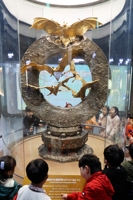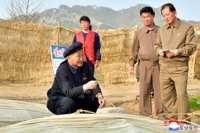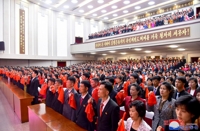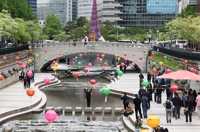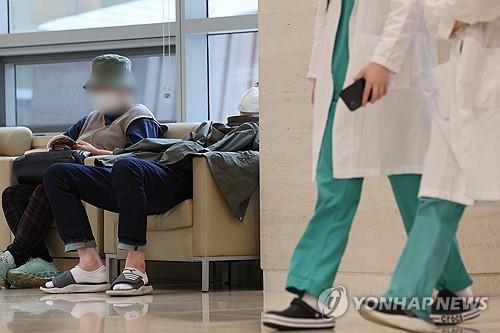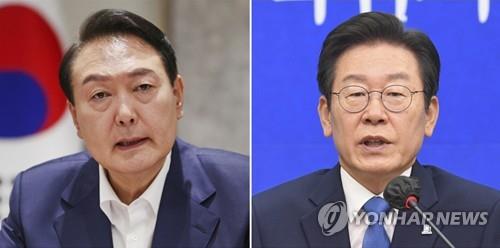(LEAD) S. Korea seeks to boost tourism in DMZ
(ATTN: UPDATES throughout with more details; CHANGES photos)
By Kim Eun-jung
HAWCHEON, South Korea, April 29 (Yonhap) -- In the first-ever workshop held on the southern part of the demilitarized zone (DMZ) separating the two Koreas on Friday, officials and experts discussed ways to promote tourism in the heavily fortified region amid high military tensions on the peninsula.
About 100 participants gathered at the Seven Star Observatory atop a 690-meter-tall peak in Hwacheon, 110km northeast of Seoul, for a two-day workshop to utilize tourism resources in the rugged no man's land extending from coast to coast.
With North Korean guard posts seen through a wide window as the backdrop and a propaganda loudspeaker as ambient sound, participants had a hot debate as South Korean soldiers of the 7th Infantry Division patrolled along the barbed wire.
The thin military demarcation line marked through a small stream and the mountains was a tragic reminder of the peninsula divided since the end of 1950-53 Korean War. If that's the reality, then it's the story visitors to this tightly restricted area should know, they said.
"The DMZ was born through a tragedy in which the same countrymen fought each other nearly seven decades ago. Although foreigners mostly link this place to conflict and confrontation, we need to change the story of the DMZ," Ryoo Kihl-jae, former unification minister and current professor at the University of North Korean Studies in Seoul, said during a speech. "Why don't we change the story to promote peace and co-existence?"
Although DMZ tourism was considered a good way to boost the local economy and raise awareness of Korean history, the panels shared the consensus that the discussion cannot move a step forward if inter-Korean relations remain as sour as they are now.
Military tensions have escalated to the boiling point following a series of North Korean provocations earlier this year. Civilian visits to the area were temporarily suspended for nearly a month after its fourth nuclear test on Jan. 6.
"If relations between the two Koreas remain frozen, it is hard to vitalize DMZ tourism," Ryoo said. "We have to transform the DMZ from an epicenter of war to a peace plant. For that goal, we have to honestly tell the story of conflict and pain that lasted for nearly 70 years and present a vision for reunification."
The state-run Korean Tourism Organization, which hosted the event, said it will put concerted efforts with provincial governments and industry officials to diversify programs and provide easier access to visitors.
"The demilitarized zone is ironically a heavily fortified region where the militaries of the two Koreas are confronting each other," Jung Chang-soo, the chief of KTO, said. "If we develop it as a world tourism spot, it would help deter North Korean aggression and contribute to the national economy and the reunification of the Korean Peninsula."
Also mindful of the current security situation, Jung said his organization will study ways to select the best spots for international tourism and expand them later when the time is ready.
"Since we cannot make use of the entire DMZ area for tourism, we'd better select good locations and focus our resources there," he said.
Military officials said they will maintain high vigilance along the border area, pledging to help improve tourism infrastructure in cooperation with provincial governments and related organizations.
"We will make efforts to remove the remaining mines jointly with provincial governments for the safety of visitors and develop forests and swamplands in major areas," said Won Hong-kyu, a two-star Army general, former commander of the division.
Gangwon Province, which governs the eastern part of the DMZ area, expressed hope that the tourism programs could give wider options to tourists and athletes during the 2018 PyeongChang Winter Olympics. PyeongChang is the venue for the sports game, located 182 kilometers east of Seoul.
"This area lacks transportation infrastructure and accommodation facilities, making it difficult for visitors to come by themselves and stay overnight," Gov. Choi Moon-soon said. "We have proposed easing regulations on areas with observatories to provide easier access to tourists ahead of the sports game."
ejkim@yna.co.kr
(END)
-
 'Queen of Tears' weaves rich tapestry of Korean contemporary art
'Queen of Tears' weaves rich tapestry of Korean contemporary art -
 Ateez member Yunho throws first pitch at MLB match between Dodgers, Mets
Ateez member Yunho throws first pitch at MLB match between Dodgers, Mets -
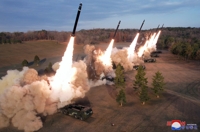 N. Korea says Kim guided simulated nuclear counterattack drills for 1st time
N. Korea says Kim guided simulated nuclear counterattack drills for 1st time -
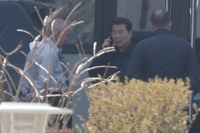 N. Korea calls envisioned U.S. aid to Ukraine 'hallucinogen'
N. Korea calls envisioned U.S. aid to Ukraine 'hallucinogen' -
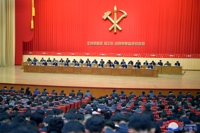 N. Korea calls on party propaganda officials to work harder
N. Korea calls on party propaganda officials to work harder
-
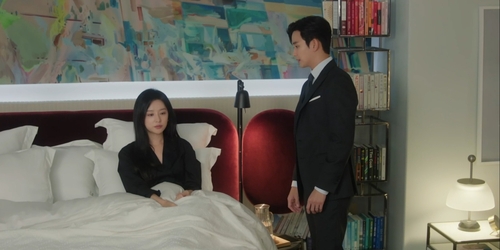 'Queen of Tears' weaves rich tapestry of Korean contemporary art
'Queen of Tears' weaves rich tapestry of Korean contemporary art -
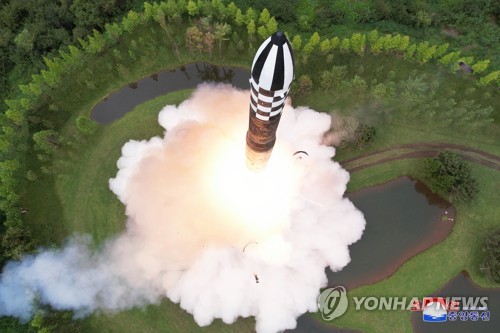 Experts see possibility of N.K. conducting nuclear test before U.S. presidential vote
Experts see possibility of N.K. conducting nuclear test before U.S. presidential vote -
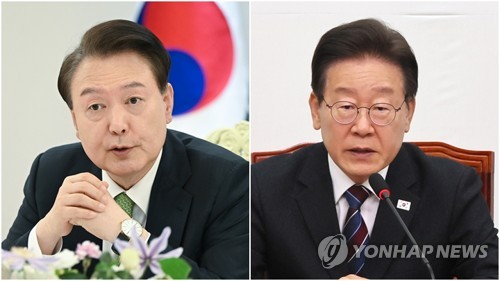 Details of meeting between Yoon, opposition leader undecided: presidential office
Details of meeting between Yoon, opposition leader undecided: presidential office -
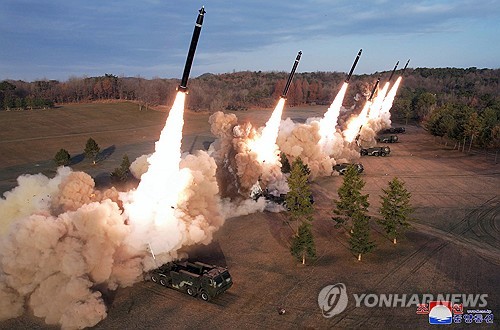 N. Korea says Kim guided simulated nuclear counterattack drills for 1st time
N. Korea says Kim guided simulated nuclear counterattack drills for 1st time -
 Looming weekly closure of major hospitals feared to worsen medical service crisis
Looming weekly closure of major hospitals feared to worsen medical service crisis
-
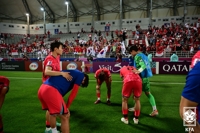 S. Korea eliminated in Olympic football qualifiers as poor defense, undisciplined play prove costly
S. Korea eliminated in Olympic football qualifiers as poor defense, undisciplined play prove costly -
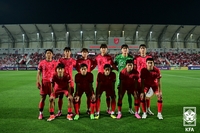 10-man S. Korea lose to Indonesia to miss out on Paris Olympic football qualification
10-man S. Korea lose to Indonesia to miss out on Paris Olympic football qualification -
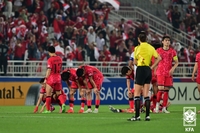 (LEAD) 10-man S. Korea lose to Indonesia to miss out on Paris Olympic football qualification
(LEAD) 10-man S. Korea lose to Indonesia to miss out on Paris Olympic football qualification -
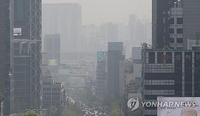 S. Korea reports highest suicide rate, ultra fine dust level among OECD nations: data
S. Korea reports highest suicide rate, ultra fine dust level among OECD nations: data -
 (3rd LD) Hybe to file complaint against sublabel executives over internal conflict
(3rd LD) Hybe to file complaint against sublabel executives over internal conflict















